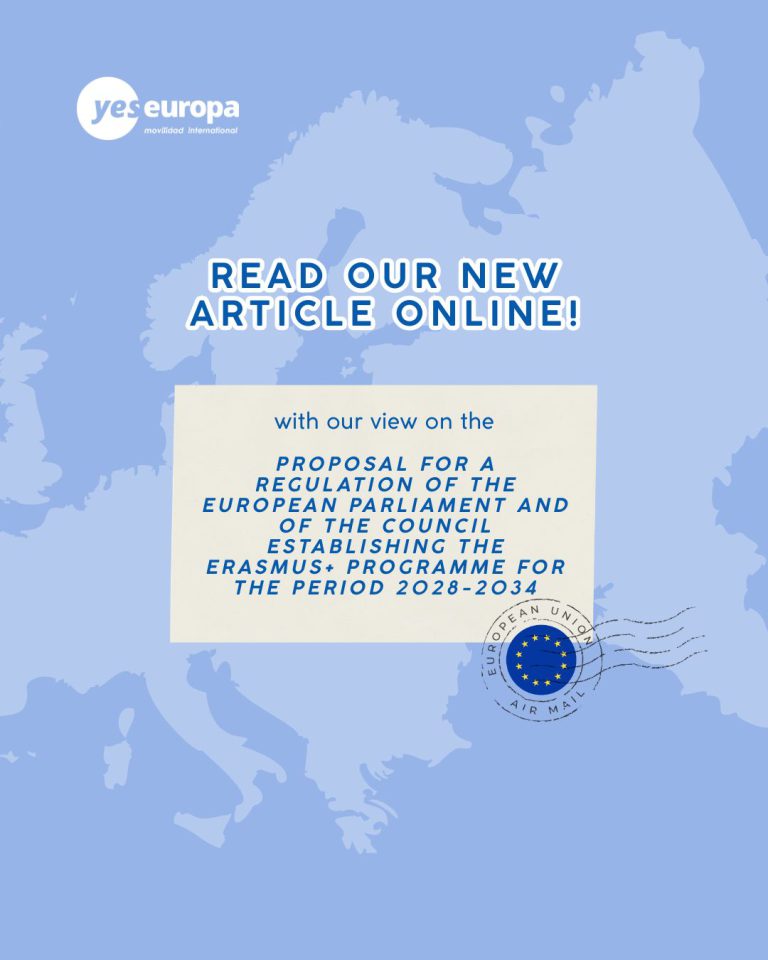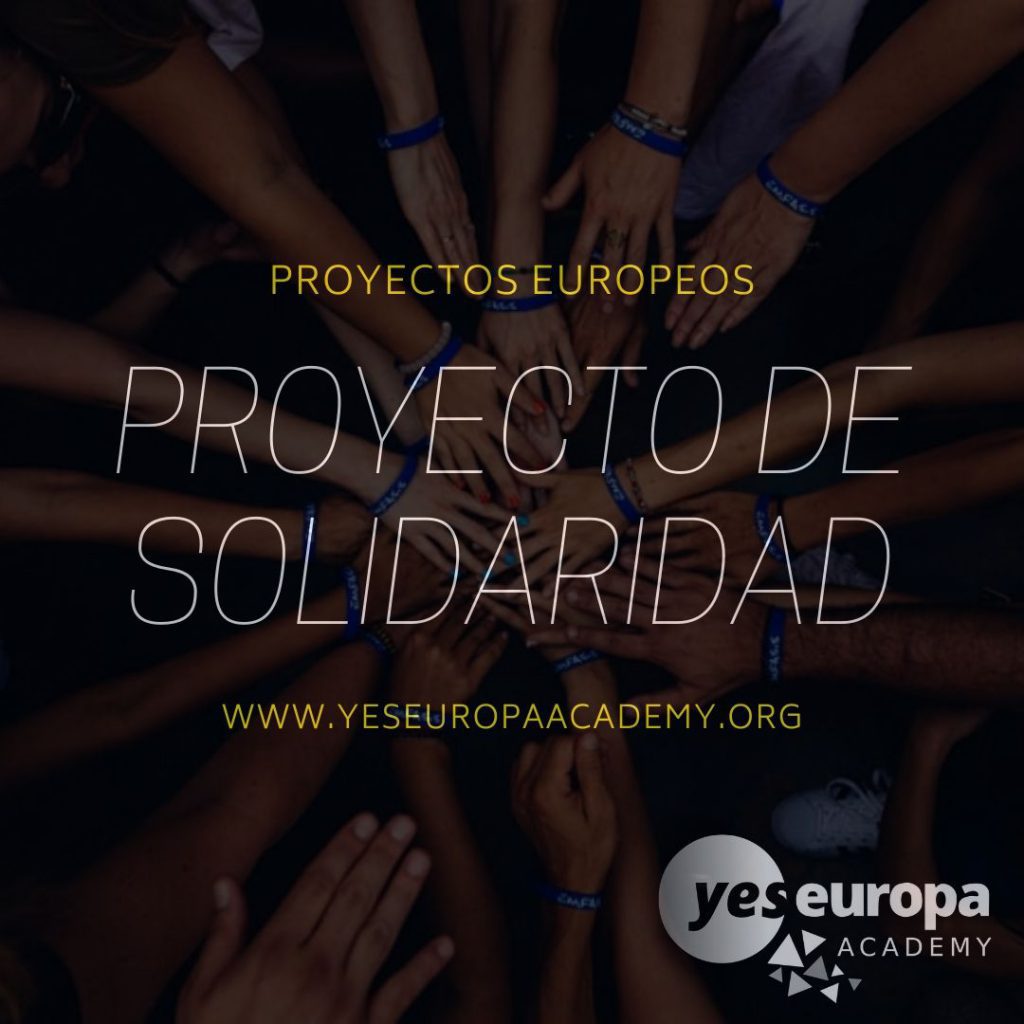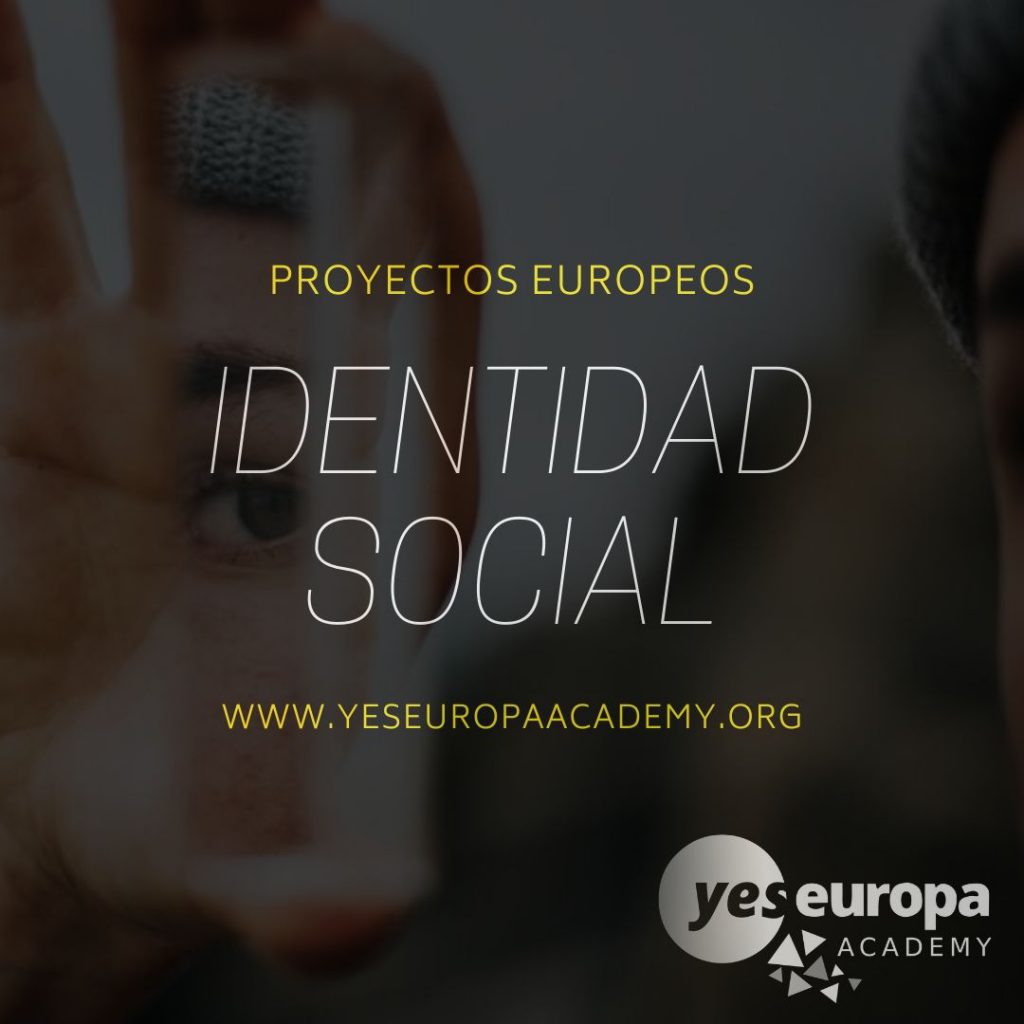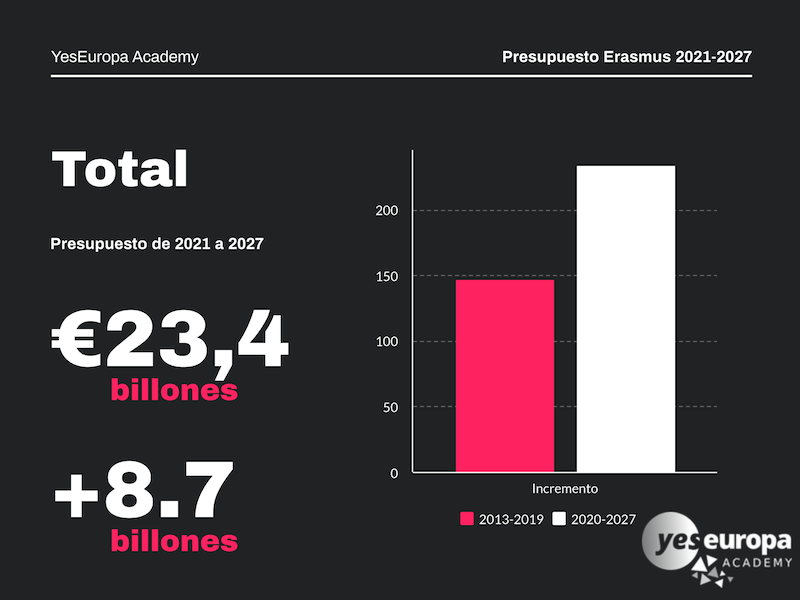The future of Erasmus+ 2028-2034

On July 16th, a new proposal for the regulation of the European Parliament and the Council for the Erasmus+ programme came out. This proposal, although still provisional and subject to change, is very interesting because it involves major changes for the period 2028-34, covering 7 years of the next generation of the Erasmus+ Programme.
Much of what we know so far could change: basically everything points to the fact that we will no longer talk about «key actions» (Key Action). The renowned KA1 and KA2 will cease to exist, funding will change and more changes will be made.
Let’s not forget that this proposal is still being negotiated, as the current Erasmus+ programme was already negotiated in 2020. Indeed, in Spain there was a public consultation open to proposals and contributions. Yet this proposal already points out several aspects that we will have to take into account. How much of this is just a formal change? What is going to disappear? What is the program maintaining from the past? And how much will it affect us, as participants and entities?
Recibe gratis clases para saber cómo impulsar tus proyectos en estos tiempos locos.
|
Al enviar este mail, estás de acuerdo con que almacenemos y gestionemos tus datos. |
The vanishing of the European Solidarity Corps (ESC)
A first major change in the new proposal is the formal disappearance of the ESC, since it is integrated (again) within the Erasmus + programme. As we recall,, this already happened before 2020, when the previous «European Voluntary Service» was for almost two years under the umbrella of Erasmus+. Until Juncker came up with the idea of separating it and creating a new programme as a political initiative for his Commission.
This means that even if the ESC maintains its own brand identity, the two instruments will have a single regulation and a common budget. The objective of this union is obviously the possibility of combining funds to carry out educational and humanitarian projects together, in order to create a more efficient and flexible management, eliminating administrative and budgetary duplications. In fact, the ESC and Erasmus+ share common tools, such as the URF register, the application system, the Beneficiary Module for final reporting, etc.
Key actions disappear (KA1, KA2 and KA3)
The ESC is not the only one that will disappear, but also the key actions KA1, KA2 and KA3. Not in substance but as a formal nomenclature. They are not mentioned directly in the new regulation. Instead, the Erasmus+ programme is organised by areas of intervention such as mobility, cooperation, participation and solidarity. In practice, the contents that were previously under the KAs are maintained, but with a more flexible and transversal structure, which allows actions to be combined and projects better adapted to each context.
The economic budget
Here comes the core of this new proposal: a particularly relevant change is on the economic budget available for these projects: now a single budget should cover all projects, without differentiation if they are dedicated to ESC and Erasmus +.
Article 17 details that the total budget is EUR 26,148 million in current prices, of which EUR 999 million are allocated to voluntary and solidarity actions (ETUC). Erasmus + 2021-2027 has a budget of 24,570 million euros and the ESC, as a separate programme, of 1,009 million euros.
This means that, in the end, the overall budget remains stable: only the funding model changes and this with the aim of prioritizing inclusion, flexibility and the possibility to transfer funds between actions. This implies that there is more scope to adjust funds between actions according to annual or unforeseen requirements (such as an inflation crisis, an economic crisis, etc.). This strengthens the possibility of transferring funds between actions, according to strategic priorities.
In addition, additional funding for people with fewer opportunities is legally and explicitly enabled (art. 19.3), reinforcing the principle of equity. The political initiative launched by Von der Leyden a couple of years ago to create a new separate European programme, called ALMA, remains in limbo.
By the time the new programme becomes effective, all stakeholders and lobbies will be pushing for an increase in the budget. It makes perfect sense, as in 2021 the growth of the Erasmus+ budget compared to the previous generation of the programme was 40%. The fact that the budget of the EU’s most (re)known European programme remains stable is a small step forward. However, we know that other factors, such as increased funding for Defence, will affect the growth in budget of Erasmus+.
New European priorities
This new document also details new key European priorities of the new programme: inclusion and diversity, digital and ecological transition, youth participation, democratic citizenship and EU values. Specifically, the ecological transition is to be reinforced as a mandatory transversal axis, with projects on sustainability and green competences. It introduces the dimension of democratic resilience and European defence (civic education against threats), consolidates humanitarian volunteering as a stable part of the programme, and promotes active citizenship from childhood. Inter-sectoral flexibility is also enhanced, allowing hybrid projects between education, youth, vocational training and volunteering.
While these European priorities are detailed in the proposal, it is clear that others, so far pillars of the programmes, are disappearing. One example is sport, which no longer has its own axis and becomes part of other actions such as inclusion or youth. The difficulty of the National Agencies to involve more grassroots sports entities is perhaps to blame.
On the other hand, pedagogical innovation, currently highlighted in the current Erasmus+ programme, is diluted in green and digital skills. The focus is also reduced to institutional governance of the European education space, in favour of direct participation and social impact.
The Youth Chapter is diluted
There will be no recognizable Youth chapter. This does not mean that young people will not participate in Erasmus+, but the visibility of Youth Work is going to be diluted as many of the initiatives and actions contained in the programme are not going to have the «Youth» label. This will have a negative impact on entities working in the youth work sector.
People with fewer opportunities
The new regulation defines more precisely what is meant by people with fewer opportunities. This allows (finally) a clear definition of this group since it is currently subject to interpretation by the National Agencies, which in many cases still do not define it clearly, as is the case in Spain.
According to article 2.14 of the document, this group of people with fewer opportunities will include those who face economic, social, sexual orientation or immigration status.
The purpose of this definition is to highlight the categories in concrete ways so that specific financial measures can be applied, such as supplements per participant, exceptional costs covered as companions, adapted preparation or translation costs. It is also intended to help entities that work with these groups or are located in regions with historically low participation in the programme. Article 19.3 legally supports additional financial support for these individuals. Article 18.2 provides that funds may take the form of grants, prizes, unit costs, which facilitates flexible adaptation to each case without complex formalities.
Priority will be given to funding people with fewer opportunities, with adapted support mechanisms and new forms of accessible participation. Rural schools, small NGOs or new organisations will have simplified access routes.
New target
An important development is the direct participation of children and primary school pupils in European mobility, a structural change that makes younger people direct participants in the programme. The aim is to foster European awareness from childhood, reduce structural inequalities and promote active citizenship from the earliest stages of education by enabling children from disadvantaged backgrounds to have international learning experiences. This is intended to create early habits of intercultural learning, multilingualism and democratic citizenship.
Negative or positive?
Our conclusion is that in the end many of these changes foresee variations at a nominal level but not at a practical level: we have seen that funding does not imply many changes, just as the disappearance of the ESC is only at a formal level, but in practice it will continue to operate in the same way as before. The objective is to achieve greater fluidity between funds in the various programmes so that they reach where they are most needed. For the National Agencies this should lead to administrative simplification, reduction of documentary verification burden, acceleration in payments and a more detailed focus on qualitative impact rather than detailed financial control. Let us hope that the backlog of projects during the proposal and evaluation phase will be somewhat reduced, with Spain being one of the countries suffering from the greatest delays.
In any case, these changes involve a reorganisation of structures, an adaptation of systems and new staff training. The explicit goal of broadening inclusion and funding for child mobility is very interesting (although it is actually already happening). However, it is clear that the budget does not grow, and it is bad news that the programme is left without a courageous bet by the Commission to provide funds for its flagship programme.
Finally, while we consider that flexibility in projects is useful, it can lead to inequality between sectors if there is political pressure or imbalance. One negative aspect that we draw is the risk of the ESC losing its identity and visibility. When it rains, it pours (again): 7 years ago the mark of «European Voluntary Service» was lost to become a «European Solidarity Corps» (ESC), throwing away a branding that had already been consolidated among young people. The fact that the ESC will return to Erasmus+ will generate confusion and noise, and there will be the need to do pedagogy again among young people and entities to explain the changes.
Everything is still in the air and in these months we will see the coming and goings of negotiations. We will have to be patient because until November-December 2027, when the new guide of the Erasmus 2028-2034 program comes out, we will not know for sure the details of it.



